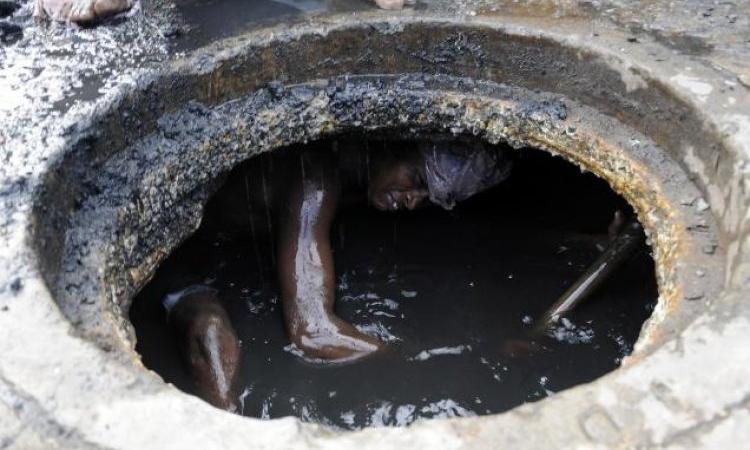
Supreme Court question authorities on why manual scavenging still prevails
Taking note of four to five deaths every month due to manual scavenging, the Supreme Court came down heavily on the government for failing to provide protective gear to people engaged in manual scavenging and cleaning of sewage or manholes. The apex court expressed its concern regarding the practice still persisting in the country and remarked that 'nowhere in the world are people sent to gas chambers to die'. Bezwada Wilson of the Safai Karamchari Andolan (SKA) said the court has taken a firm stand on the issue, but it must come up with stringent orders to stop manual scavenging and any other operations if proper protective gears are not provided to the people involved in the practice. (The Hindu)
High Court to ascertain whether Aarey a forest or not
Out of the 17 petitions received opposing the various aspects of the Colaba-Bandra-Seepz Metro-3 project, the Bombay High Court has chosen four petitions for hearing. Majorly, the court will be deciding whether Aarey Colony, where the car shed of the Metro project is scheduled to come up, is a forest or not and if it is not, then whether the HC can pass directions to declare it so. The judges will be visiting the site to ascertain the facts and the court has also taken the petition challenging the proposed clearing of over 2,600 trees for the car shed at Aarey. The HC has also picked up the issue regarding the proposed land belonging to the forest department and if it does, whether it is a floodplain of the Mithi river. (DNA)
Destruction to mangroves in Kachchh and threat to Kharai camels come under NGT scanner
To protect the mangroves in Kachchh district of Gujarat, also the habitat of Kharai camel species, the National Green Tribunal (NGT) has ordered the Gujarat’s forest department, CZMA and revenue officials to ensure that there is 'free and continuous flow of estuarine water in the creeks' and there is 'no obstruction of any kind'. The order has come following the Kachchh Camel Breeders Association (KCBA) filed a complaint against the rampant clearing of the mangroves in Kachchh by the Deendayal Port Trust (DPT), in violation of the provisions of the Coastal Regulation Zone Notification (CRZ) 2011 as well as Forest Conservation Act 1980. The tribunal has also directed the authorities to take immediate action to restore the mangroves which are damaged within a period of six months. (Mongabay India)
India will soon have an apex water authority for northeast region
In the backdrop of China’s ambitious $62 billion south-north water diversion scheme, India will soon have a North East Water Management Authority (NEWMA) to evolve a consolidated strategy for the management of water resources in the north-east region. The recommendation to set up an authority has been provided by the high level committee, headed by NITI Aayog vice-chairman Rajiv Kumar. NEWMA will be the apex authority for developing all projects related to hydropower, agriculture, bio-diversity conservation, flood control, inland water transport, forestry, fishery and eco-tourism in the region. Along with this, it will also help spearhead India’s efforts to establish prior user rights on waters from the rivers that originate in China. (Livemint)
Assam government approves draft proposal for eco-sensitive zone around Kaziranga
With an aim to regulate activity including mining around the national park, the Assam government has approved a draft proposal for a long pending eco-sensitive zone (ESZ) around Kaziranga National Park and sent it to the Centre. The move is in line with the Supreme Court's direction that banned all mining activities along the Kaziranga National Park and catchment area of rivers originating in Karbi Anglong Hills in Assam. As per the state's forest officials, the extent of the Kaziranga National Park ESZ would be zero to two kilometers of the boundary of the park, as against the Supreme Court's guidelines that directed an ESZ of up to 10 kilometres from the boundary of the protected area. (Hindustan Times)
This is a roundup of important policy matters from September 17 - 23, 2019. Also, read news this week.